Let me make clear right now that I am not suggesting that people forsake their houses for living out of vehicles. There are just too many things wrong with homelessness: in the first place, it is not socially acceptable, on the main, and the lack of personal privacy is objectionable, even if one works very hard at the logistics to make it tolerable.
Not a day goes by that does not include some form of dread around using public facilities. For instance, as I am driving over to the public restroom in the morning, I am wondering if there will be many people around --- joggers, fishermen, picnickers, kayakers, and so on. More specifically, it is the idea of being seen taking my duffle out of the truck and putting it back, actions that could give away my status as homeless. Of course, the reality is that few people would regard it as their business, assuming they were even able to identify whether or not someone were homeless.
But, there is that sense of vulnerability which never goes away. Though I am aware that the presence of other people makes no difference whatsoever in what I must do for myself, and I will certainly not be late for work because other people can view my trip to the washroom, I cannot seem to kick that feeling.
One of my theories about feeling vulnerable in my circumstance is that I have something with which to compare it. I was not always homeless and once lived in a large, beautiful house. In the morning, I awoke in a roomy bed and could get up and move around without changing out of my pajamas, from the bed to the bathroom, from the bathroom to the kitchen, and so on, even traipsing outdoors with the dog. My belongings were everywhere, in every room of the house, which amazes me now when I think on it. My environment was aesthetically pleasing, which means I had more than I ever needed; I bought items just to match a color in the floor.
The space of my truck is a fraction of the size of that house. I can only use what area is not taken up by the engine compartment, which is about two-thirds of the truck, and I cannot stand up straight anywhere. Maybe I have 65 square feet.
I am not bewailing my present circumstance, but discomfort at times leads my mind to visions of a sunlit kitchen with views through French doors to the garden and the smell of citrus fruit in a bowl and of bread toasting, details of a clean and pampered life. Understandably, there is nothing I have now to match that, but it has helped to keep some remnants, a down blanket, a letter opener, silk scarves.
Yet, without the comparison, is there really a reason to feel vulnerable? And perhaps it is not vulnerability, but shame. No one likes poor people, unless it is for pity's sake which makes one feel better for having more and being able to adopt an attitude of noblesse oblige. The signs of poverty, for the most part, make us cringe; but, again, it is the comparison to comfort, which, were it unknown to us, would perhaps lead to a different response, though I am hard pressed to think what that would be.
But we are not in the Stone Age, and I am completely conditioned to cleanliness. I am certain that I could not survive any worsening of my circumstance because going dirty is my limit. I cannot do it, and I would probably sell my soul for a bath.
I think of my yacht-club compatriot, Steve, who is ashen in that homeless way and dirty. He is so dirty that being near him makes me itch, as I am allergic to mites. Even though Steve is intelligent, has a pleasant manner, and keeps to himself, I loathe him for the mites and the smell.
Steve has a bicycle, so he is able to get around. I see him at the library often, and he enjoys playing golf, though he complains that someone took his golf clubs, stole them from his little home in the bushes behind the trash bins (where I assume he picked up mites), too near the yacht club's private parking lot where patrons are able to see his possessions through the fence and wonder at what appears to be garbage strewn about. (I feel certain the Mexican gardeners took Steve's golf bag, and I have asked my friend, Lincoln, the night security man, to find out what happened. More on that later.)
I met Steve one evening when I found him sleeping in the women's shower room. I was not nice to him, not the least bit, as I was tired and wanted to prepare for bed. Steve picked himself up and his belongings and left with an equanimity that put me to shame. I felt guilty over that incident, but I was able to exonerate myself when he showed up again on a really cold night, reason enough to seek enclosure. This time, I suggested Steve use the toilet room that has a large stall in the back where he could shut the door and manage to be out of the way and unseen.
Steve took my suggestion. One rainy evening, I entered the restroom and noticed right away that the air felt tight and clingy. There was a slight foul odor, and I began to feel that creeping itch. I looked over to the back stall and could see a bicycle and part of a sleeping bag under the door. At least, he was out of view, and I was out of view of him, though washing up for bed in the same room where a strange, smelly man was sleeping --- well, I'd rather not talk about it.
But back to the idea of shame at being homeless, I believe it is a conditioned response, both cultural and personal. Homelessness is far removed from our expectations around lifestyle, and it does little good to pose "what if" scenarios when there is just little known to be attractive about homelessness. The fact is there is a lot to which one can compare it, and even camping sounds better off. We are culturally indisposed to it, by thousands of years.
I am reminded, though, of my visit to Central America years ago: I stayed with a family that was living in a house with a dirt floor, which was swept just like any other floor. Though these people were peasants, they seemed to have all they needed. And, by the way, they were never dirty or smelly. After dinner, they and friends would stay up till dark and tell stories and laugh. The children would chase hens around the yard and find other silly things to do. The food was simple, but wholesome, and I slept peacefully out in the barn, the only spare room. If this sounds too idyllic, it does not change the fact that it was.
When I returned home to the United States, I was confronted with what appeared to be mass insanity. I was deafened for weeks as I readjusted to all the forms of noise to which we are accustomed, a constant bombardment of sounds from motor vehicles, radios, televisions, construction sites, and people talking. I had never noticed before how much Americans talk and how loudly they do it. I suppose we have to talk over all the other noises to be heard. Perhaps we also need all the noise to keep from listening to our deepest heart's desires.
I missed the quiet people of Central America. I missed the simple, wordless, emotional tie I seemed to have with them. I missed their clarity. Their lives were relaxed and emotionally satisfying. They were not sublimated in the least. They were not bogged down in a constant, noisy bustle that would suck their life out and make them insane.
Yet, to be sure, these Central American peasants, like peasants the world over, are considered poor and, thereby, needful of development, that is, all forms of our civilization, from education to finance. But these peasants were not starving or hungry or unhappy. Indeed, emotionally, they lived an enviable life no longer available to most of us in the United States. Nonetheless, they are too poor by our standards, even if it is a faulty comparison.
Sadly, though, homelessness is a different kind of poverty. It constitutes a wholesale rejection of everything we hold dear, from bathing to spending time with significant others. It is a strange kind of impoverishment that leads to subhuman conditions for those who are homeless and subhuman responses from those who are housed. It has polarized our society and become symbolic of our cultural decline.
Hello world!
-
Welcome to WordPress. This is your first post. Edit or delete it, then
start writing!





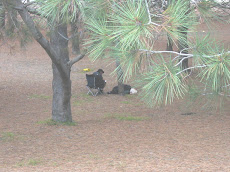


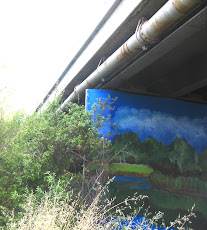
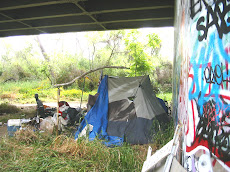







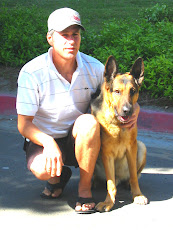
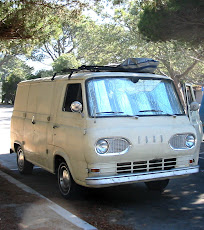
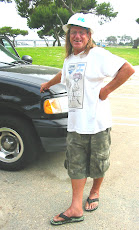









No comments:
Post a Comment